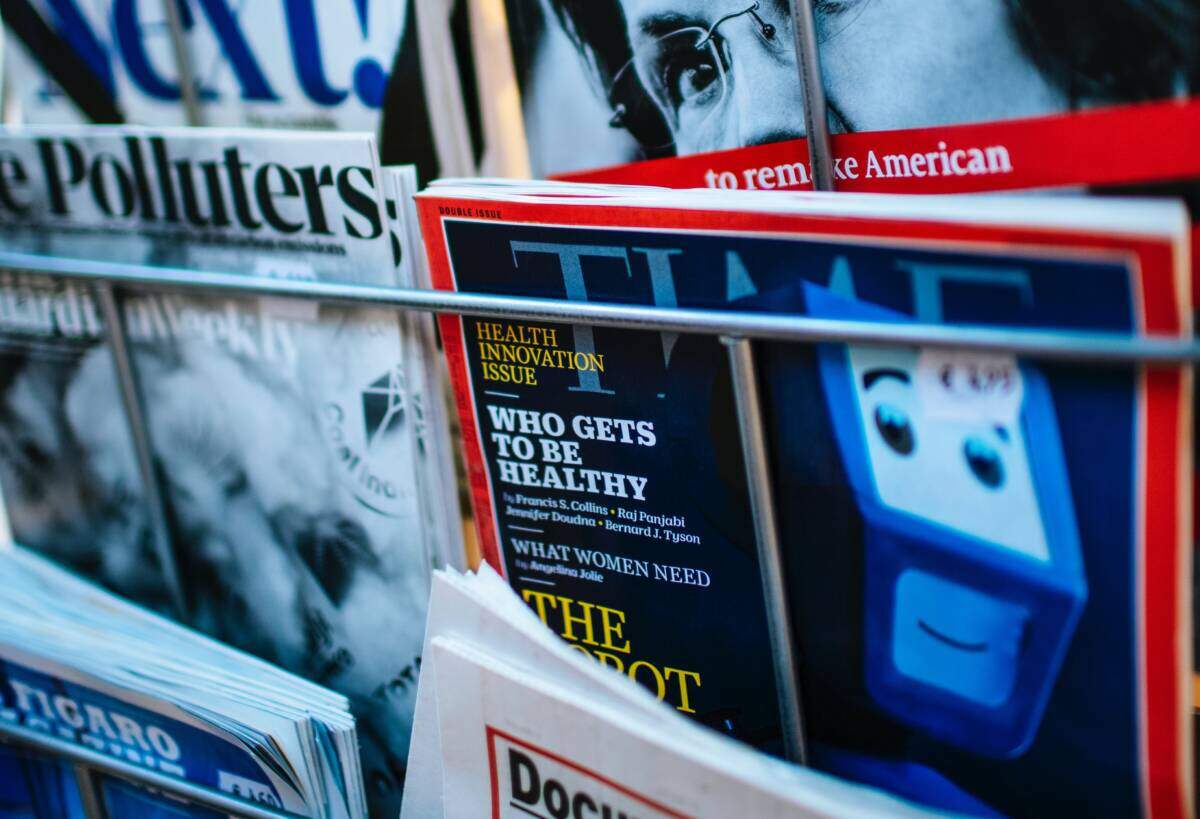In the midst of a thread on social media, an acquaintance of mine made this simple-sounding but hugely complex comment:
I think we have to be very careful about what we believe today because everyone has an agenda. I wish we could go back to when the news was just delivered.
There’s a simple reason why we can’t, and the reason is you. All of you. All of us. At one time, presenting “news” – particularly in radio and television [1] – wasn’t meant to make money. It was a responsibility, a duty that was just part of what you did if you ran a television or radio station. Broadcasters assumed that their news departments would lose money. And then that started to change in the 1970s. Broadcasters wanted to make the most money they possibly could from their stations – and that meant that the ratings of news programs were no longer a source of prestige, but a source of advertising dollars. Why have small-town newsrooms doing independent journalism, when you could consolidate them? Broadcasters quickly realized that would allow them to save money on producing news programs, so the net profits would go up, even if nothing changed. And then they took a page (literally) from newspaper tactics at the beginning of the 1900’s – yellow journalism. You probably have heard of it as “if it bleeds, it leads.” I really can’t beat Wikipedia’s summary:
W. Joseph Campbell describes yellow press newspapers as having daily multi-column front-page headlines covering a variety of topics, such as sports and scandal, using bold layouts (with large illustrations and perhaps color), heavy reliance on unnamed sources, and unabashed self-promotion. The term was extensively used to describe certain major New York City newspapers around 1900 as they battled for circulation. One aspect of yellow journalism was a surge in sensationalized crime reporting to boost sales and excite public opinion.
Frank Luther Mott identifies yellow journalism based on five characteristics:
* scare headlines in huge print, often of minor news
* lavish use of pictures, or imaginary drawings
* use of faked interviews, misleading headlines, pseudoscience, and a parade of false learning from so-called experts
* emphasis on full-color Sunday supplements, usually with comic strips
* dramatic sympathy with the “underdog” against the system.https://en.wikipedia.org/wiki/Yellow_journalism
If you’re thinking “it’s the guys on the other side that do that,” you’re right.
No matter what side you’re on.
This is not a political thing – this is a money thing.
And it only works because we keep falling for a 120-year-old trick.
It’s exactly the same thing as clickbait titles and listicles and all the other modern variations. Because leading with sensationalism works. Getting people angry gets people to keep paying attention – not just to the news, but to the advertisements that bring in those dollar bills. Facebook knows this – that’s why they weighted the “angry” emoji to carry more weight. That’s why they’re so resistant to a chronological timeline. The more you’re angry, the more you’re engaged, the more advertisements you see, the more money they make. That’s it. No conspiracy needed. Just greedy amoral assholes. Plus all of us suckers falling for it. Every damn time. Media companies – no matter where they are on the political spectrum – know who their audiences are. They have advertisements to sell, so they broadcast what their audience wants to hear … or will piss them off enough that they stay tuned. It’s that simple, and that evil. Look at the media bias charts. It doesn’t matter much which one you use (here’s one), because there’s a group of news agencies that consistently shows up in the “least biased” category. That isn’t an accident, and has nothing to do with the politics of the reporters. Those agencies are ones that either make their money by selling their news to other news markets (AP, Reuters) or are not funded by advertisements during news broadcasts (BBC, NPR [2]). All the rest – regardless of whether on the left or the right – want you pissed off and watching their advertisements. The problem is you. The problem is me. The problem is all of us who keep falling for the same damn 120-year-old trick. And only you can make it stop. Will you?
[2] My point here being that NPR is not funded by advertisements, so it doesn’t have to be “popular” in the same way as other news outlets.
